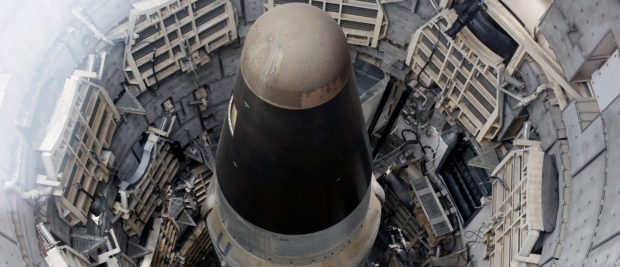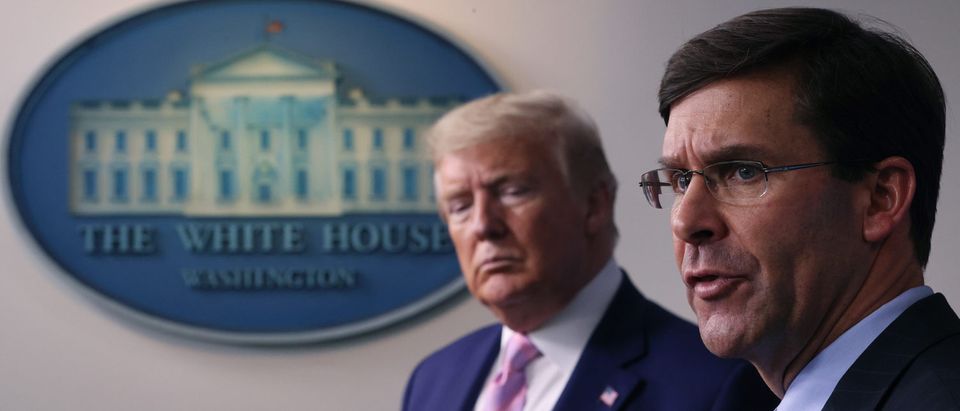Secretary of Defense Mark Esper expressed concern in an interview Tuesday that record high budget deficits could prevent the Pentagon from properly funding the country’s nuclear arsenal.
As the federal budget deficit exceeded $738 billion in April and is expected to reach $3.7 trillion by the time the current annual federal budget ends in September, the Department of Defense (DOD) could be forced to scale back its plans to modernize and upgrade the nuclear weapons program, the Associated Press reported.
President Donald Trump committed to upgrading the nuclear arsenal at the beginning of his presidency, vowing to keep the arsenal in “second to none” condition.
The DOD views potential budget cuts as undermining its efforts to strengthen national security. Senior DOD officials stated during a briefing Feb. 21 that the Pentagon would request $28.9 billion for upgrading the nuclear arsenal as a part of the 2021 budget.

Titan II Intercontinental Ballistic Missile (REUTERS/Nicole Neri)
In response, President Trump’s 2021 budget proposed an overall $46 billion for the nuclear weapons program. However, fully upgrading the nuclear arsenal would cost almost $500 billion over 10 years and $1.2 trillion over 30 years, as estimated by the Congressional Budget Office, which would increase the country’s already enormous budget deficit and total debt.
Esper argued that upgrading the nuclear arsenal is too important to ignore, even during a pandemic-induced economic crisis. “We’re not going to risk the strategic deterrent,” he stated at a Pentagon news conference May 5, defending the DOD’s plan as a way to reduce the chances of nuclear war and make sure the United States is prepared in the event of such a conflict. (RELATED: OPINION: Is The United States’ Nuclear Capability Safe From Other Nuclear Powers?)
Geopolitical adversaries, like Russia and China, have been rapidly developing their nuclear weapons programs, and have previously violated nuclear weapons treaties. Rogue nations, like Iran and North Korea, have not complied with international nuclear weapons treaties in the past.


